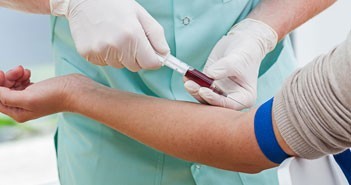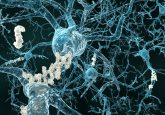New rapid blood test could identify active tuberculosis infections

An article published in Science Translational Medicine details a new triage test for human blood samples. The research states that the test could be capable of identifying cases of adult tuberculosis (TB) – accurately distinguishing the infection from other diseases that present similar symptoms – in under 1 hour.
The research could be an important breakthrough for diagnosing active cases, which can go undiagnosed in immunocompromised patients, for example those living with HIV. At present, TB remains a global health burden and diagnosis can be a challenge due to a range of other diseases presenting with TB-like symptoms.
The research team began by using machine learning techniques to study 406 patients suffering from chronic cough. The analysis identified four blood proteins that could be used to distinguish active cases of TB from diseases causing TB-like symptoms.
Following identification of the four blood proteins the team developed an ultrasensitive immunoassay. The assay successfully identified TB infections in 317 patients from Africa, Asia and South America with chronic cough and appeared to be unaffected by patient HIV status.
The scientists improved the performance of the assay through the inclusion of a fifth biomarker to the screening panel, capable of detecting antibodies against a mycobacterial antigen. The final immunoassay reached levels of 86% and 69% sensitivity and selectivity, respectively.
The assay has yet to meet the performance guidelines required by the World Health Organization, however, further research could develop the assay into a workable test to triage patients.
Sources: Ahmad R, Xie L, Pyle M et al. A rapid triage test for active pulmonary tuberculosis in adult patients with persistent cough. Sci. Trans. Med. doi:10.1126/scitranslmed.aaw8287 (2019)(Epub ahead of print); www.eurekalert.org/pub_releases/2019-10/aaft-rtt102119.php
You may also be interested in..
Biomarker test could diagnose sepsis in minutes
Microneedle biosensor could provide real-time measurements of antibiotic concentrations






